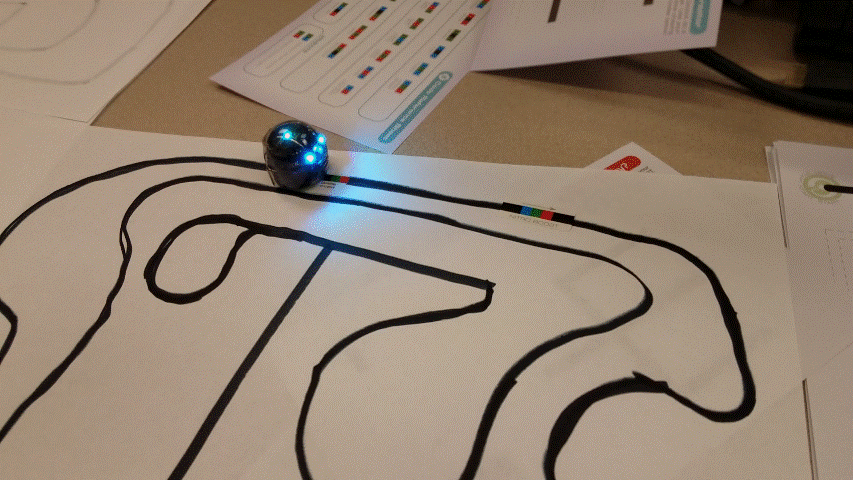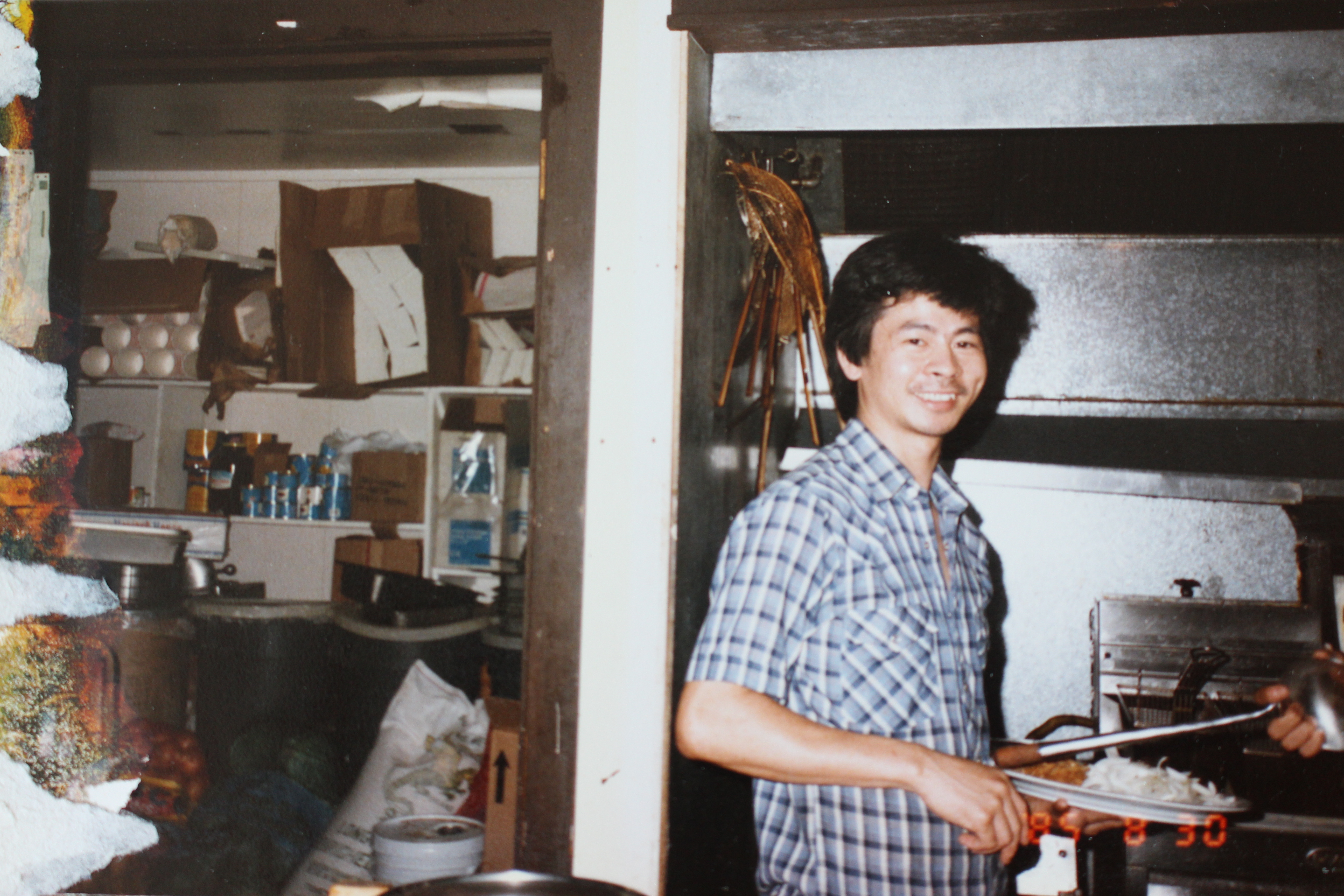15 January 2018
Dear Dad,
Do you remember when you sewed leather patches in the shape of hearts onto my burgundy corduroys?
I do.
I was in second grade and it was my first pair of pants and they were precious to me. But I came home each day with the holes in the knees growing bigger and my shame deeper. Mom would have thrown them away though, and that would have been the worst fate of all.
“There are holes in your pants,” you said into your cup of tea, balancing one leg on the rung of a stool and the other grounded on the scratched linoleum.
“Yeah, I know.”
“Why do you go to school that way? They’ll think we can’t afford to take care of you,” Mom said more to herself than to me, without looking up from the dishes. She made me change into five-dollar leggings from Wal-Mart.
I went to bed that night resigning myself to knowing that my corduroys were lying in the dumpster.
I woke up the next morning to my corduroys folded on the chest of drawers that Michelle and I shared. There were small leather patches hand-sewn into the knees, pleats pressed into the fabric. Running into the kitchen, I expected to see Mom. I found you instead.
I didn’t know many fathers who knew how to sew, or who had the foresight to know that I would need those hearts to fall on in gym class, land on while roughhousing with my cousins and stare at while in timeout for daydreaming.
That was a childhood ago. I’m twenty-five years old now, and in between then and now, you joked that I ought to marry someone who can sew because it’s the most familiar measure of one’s love. As a child, I had no clue what that meant. I only knew that I had a father who knew how to sew, and what an oddity it was for a man–especially a Hakka one, because God love ’em, they make good fathers but absent husbands–to have such patience.
It took me a few years to notice that it was always, always leather.
“Daddy, why always leather?” I had ventured, running my palms over the mossy side and inhaling the cured piece.
This time you were sewing a small pouch for Ken. He had left his retainer on his lunch tray, again, and had waded through the trash bin to find it, for fear of upsetting you.
“We were shoemakers, remember?” you replied.
I remembered your ability to walk into a shoe store and correctly guess the country in which each pair had been manufactured. Never once did we come across a pair made in India.
You retold me geographies of soles and tea plantations, of train tracks and barbed wire, of walled-in cities and long lines of bent heads whipped into submission by desert winds. When I was sixteen, you determined that I was old enough to meet Calcutta. Or rather, I met Tangra.
**
Daddy,
I remember climbing the rusted ladder up the side of Suk-poh’s house at the end of the day. I wanted to imagine aunties squatting in their kitchens, heels flat on the cool ground, butcher knives steadily moving in pendulum motions across necks of cabbage heads.
You showed me the school you bothered going to for about five years, before deciding that seventeen was too old to discipline. This school hadn’t seen children in at least a decade. A squatter’s charpai was centered in the room, letting us know that we had intruded on someone’s now home. Before leaving, we had taken a flashlight to the framed photos on the walls, using our fingertips to wipe away the dust over all the children’s faces. Yours was not among them.
You cared about documenting my childhood more than I did. Every test, every paper, every sticky note with a note scrawled, my first Chinese characters, every photo, every card and drawing. You saved my sneakers, worn down from dusty paths and gym floors and tiptoeing across the restaurant floor after a fresh mop.
**
Tangra was the aftermath of a panic attack–still paralyzed in shock, frozen in a time warp, caught between the shame of how this could have possibly happened and the fear of when it would begin again. Fifty years was an eerie wink in time.
You watched yourself become farther and farther estranged from a place that was home, each room closed off and boarded up until you found yourself in Tangra.
But was it a home, really? Darjeeling, perhaps, had been. Or maybe it was Darjeeling’s place in time and memory that had created belonging. When I was sixteen, we visited homes of old friends and neighbors, smiling with their eyes that said I’m sorry, I’m sorry, I’m sorry–even after all these years. “Shame on you for not teaching her Nepali. Why not?” women chided. You laughed it off, but I knew the answer. This language is not ours.
**
Maybe it all made sense that we couldn’t find you in that line, and we now both know what it is to not be seen.
You told me the camp was the place you learned to speak Hakka, a language so strange and demanding of the tongue, nose and throat, and one that reminded a person how foreign they could be in their own clan. It was a language that required so much of you, asked you to pick an identity. It didn’t become difficult though amid showing up as internee number [you’ve willed yourself to fill your memory with better things] during roll call and while picking stones from watery kichri on the veranda of the barracks.
You told me Tangra was the first place you saw so many Chinese people, and your first encounter with enduring shame. When I was sixteen, you walked me to a corner with a trash can overflowing into the street. “This is where the lorry left us,” you explained. You told me of knocking on the doors of the Catholic schools, and being turned away. You told me of settling on Chinese school, getting bullied for knowing Nepali, Hakka, Bengali, the English songs you heard on the radio at the camp–but no Mandarin. You told me you were about my age when you decided that no amount of further schooling was going to create a citizen, within or beyond, the walls and boundaries of Chinatown.
You told me of people, of the shoe shop, of pranks, of fights. Of sleeping on ironing boards. Of Ahpo feeding eleven people in the household. Of rainy days when the vegetable vendors refused to haggle down prices, and the rain merged with her tears. Of cutting the cables of the street trolleys, creating small chaos in a city so hasty, so fractured, of so much wonderful attitude. Of returning to Darjeeling to find nearly everything gone.
We stood next to the trash can, and you pointed up. A shuttered window faced the street and I imagined the light of the street lamp filtering through the slats. School didn’t stop you from an education. Every night, after everyone had fallen asleep. Your father didn’t think much of reading, and it was never worthwhile to keep the lights on too late because it was time for the family to sleep to start another day of sewing, selling, delivering. The light came in vertically–perfect to make out the lines of even characters. You told me the stories you read that you wanted to become a part of your own. You told me of train rides and seeing an India outside of the barbed wire, outside of the train car, outside of the camp, outside of Tangra. The sky was still above your head and the ground beneath your feet, and where there wasn’t certainty, there was another day to be had.
People ask me if I always knew, and I tell them that your childhood had been a retelling over the years, that there was no start or end to my awareness or where my childhood had been mended with the sinews of your own overcoming.
**
Dad, I live in a country that breaks my heart over and over again. I know you knew it would happen, over and over again. But in the telling of these stories, I learned half the battle of belonging is allowing myself to become. I do this in the retelling of Deoli, in remembering the placement of every detail in your stories. There are many days to go, and many disappointments ahead, and many buildings and rooms and crowds that will make me feel so out of place that I will want to cry and leave. But I remember that the sky is still above my head, and the ground beneath my feet, and I recount the numbers of our people who are still left behind us. Those things alone, have reminded me why I stand to become.
Love,
Yeeva

